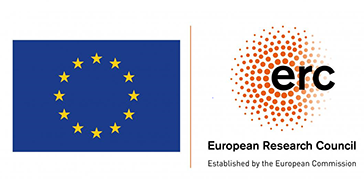Careers
Technicians - Engineers
Research Assistant – AI Optimisation for Materials Design
As a flagship research center in nanoscience and nanotechnology, our mission is to open and explore new frontiers of knowledge at the nanoscale, and bring value to society in the form of new understanding, capabilities and innovation, while inspiring and providing broad training to the next generations of researchers. Our values are Commitment, Collaboration and Transformation.
Our research lines focus on the newly-discovered physical and chemical properties that arise from the behaviour of matter at the nanoscale. ICN2 has been awarded with the Severo Ochoa Center of Excellence distinction for three consecutive periods (2014-2018 and 2018-2022 and 2023-2026). ICN2 comprises 19 Research Groups, 7 Technical Development and Support Units and Facilities, and 2 Research Platforms, covering different areas of nanoscience and nanotechnology.
Job Title: Research Assistant - AI Optimisation for Materials Design
Research area or group: Theoretical and Computational Nanoscience Group
Description of Group/Project: We are building an optimisation-driven framework that (i) makes AI agents reliably operate advanced scientific software (e.g., DFT, Wannierisation, and quantum-transport codes) and (ii) uses heuristic optimisation to explore and improve materials candidates-especially 2D/vdW structures-for target electronic/spintronic properties.
The postdoctoral researcher will lead the optimisation component: formulate the design space (categorical + continuous variables), craft domain-aware operators, and couple simulation results back into the search loop. The broader goal is to deliver a reproducible, scalable optimiser that accelerates both workflow efficiency and materials discovery.
Main Tasks and responsibilities:
- Own the optimiser: design, implement, and tune heuristic/metaheuristic algorithms (e.g., evolutionary strategies, mixed-integer approaches, simulated annealing, ant-colony variants) for mixed discrete-continuous search spaces.
- AI workflow optimisation: fine-tune and evaluate agentic/LLM-driven control of scientific codes (prompting, tool-use policies, error recovery); measure speed, accuracy, robustness, and cost vs. baselines.
- Materials design optimisation: define physics-informed fitness functions and constraints; run multi-objective searches over 2D/vdW candidates (e.g., stacking, composition, twist, strain) targeting relevant figures of merit; incorporate uncertainty and robustness.
- Integration & automation: connect the optimiser to existing simulation pipelines (DFT → TB/Wannier → transport), ensure provenance and reproducibility, and scale runs on Linux/HPC.
- Benchmarking & ablations: set baselines, perform ablation studies (encodings, operators, population sizes, selection rules), and report convergence, hit-rates, and generalisation.
- Collaboration & mentorship: coordinate with the PI and team, mentor junior researchers, conduct code reviews, and contribute to shared libraries and documentation.
- Dissemination: prepare technical reports, preprints, and reproducible artefacts where feasible.
Requirements:
Minimum:
- PhD in Physics, Materials Science, Computational Science/Engineering, Computer Science, or related field.
- Demonstrated experience implementing heuristic/metaheuristic optimisation (e.g., evolutionary algorithms/strategies, mixed-integer search, multi-objective methods).
- Strong Python and scientific-computing skills (data handling, experiment tracking, testing, version control).
- Practical familiarity with at least one of: DFT workflows, Wannier/TB model building, or quantum-transport simulations; willingness to become hands-on across the stack.
- Comfortable with Linux/HPC, job schedulers, and reproducible pipelines.
Preferred:
- Experience designing domain-aware encodings and operators for materials (stacking, symmetry, twist, strain) or analogous scientific design spaces.
- Knowledge of multi-objective optimisation, uncertainty/robustness analysis, and surrogate-assisted search (e.g., simple regressors, Gaussian processes, or BO).
- Prior work with workflow managers (e.g., AiiDA/Airflow/Snakemake) and integrating external simulation codes.
- Background in 2D materials and/or spintronic-relevant properties is a plus.
What We Offer:
- Lead role in the optimisation workstream with room to shape the methodology.
- Access to compute resources and established simulation pipelines.
- A collaborative environment at the interface of AI, simulation, and materials design.
- Professional development (mentoring, conference participation, publications).
- Flexible/hybrid arrangements as per institutional policy.
Summary of conditions:
- Full time work (37,5h/week)
- Contract Length: 12 months
- Location: Bellaterra (Barcelona)
- Salary will depend on qualifications and demonstrated experience.
- Support to the relocation issues.
- Life Insurance.
- Work-Life Balance and Flexibility with flexible work schedules
- 28 holidays per year
- Flexible compensation plan: tax advantages contracting some products (health insurance, childcare, training, among others.)
- Training activities: languages, mentoring programme, wellbeing programme.
- International environment
Estimated Incorporation date: October 2025
How to apply:
All applications must be made via the ICN2 website and include the following:
- A cover letter.
- A full CV including contact details.
- 2 Reference letters or referee contacts.
Deadline for applications: 04/09/2025
This contract has received funding from the European Union's Horizon Europe research and innovation programme - European Research Council Executive Agency under grant agreement No 101078370 - AI4SPIN""

Equal opportunities:
ICN2 is an equal opportunity employer committed to diversity and inclusion of people with disabilities.
ICN2 is following the procedure for contract of people with disabilities according with article 59 of the Royal Decree 1/2015, of 30 of October.
